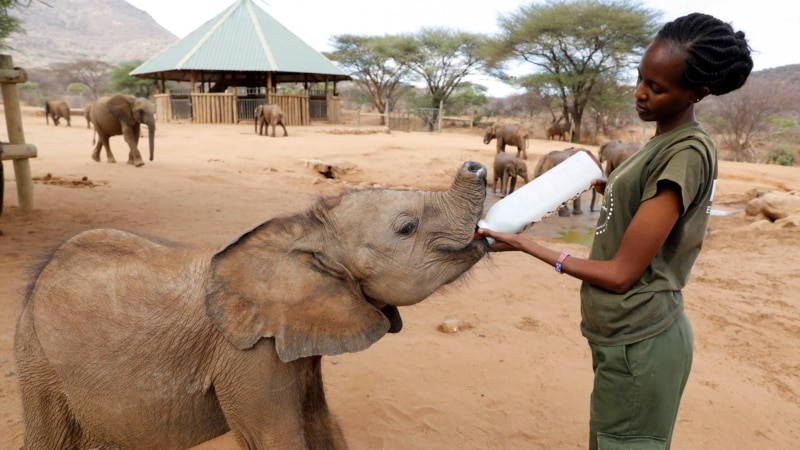
Panda in Mexico Is Last Survivor in Latin America
A panda housed at a Mexican zoo is the only one left in all of Latin America.
Xin Xin was born in Mexico. She is the remaining member of a line of pandas China gifted to foreign nations during the 1970s and 1980s. But she is nearing the end of her life and it is not clear whether Mexico will pay for getting another one.
Xin Xin lives at Chapultepec Zoo in Mexico City. The zoo is only one of two worldwide that houses pandas without the direct supervision of the Chinese government. The animals are native to China.
Xin Xin is a second-generation Mexican-born panda, with a lineage linked to Pe Pe and Ying Ying, who arrived at the zoo in 1975. Those pandas were given to Mexico as part of a Chinese program known as “panda diplomacy.” The program, which began in the late 1950s, involved China giving pandas as gifts to countries around the world.
In 1984, China ended its panda gifting policy. It then began signing loan agreements with zoo operators around the world. Since 1985, the loan program has required zoos to return any baby pandas, called cubs, to China.
China now loans giant pandas for between 10 and 15 years at a cost of $1 million per year. The agreements state that the money earned is supposed to be used to support panda conservation efforts in China.
Mexico became one of only a few countries permitted to keep new cubs born at Chapultepec Zoo.
Another female panda at the zoo, named Shuan Shuan, died in July at the age of 35. After her death, Mexican officials began talks with China’s ambassador about getting another panda.
But zoo officials say it is unlikely the current administration of Mexican President Andrés Manuel López Obrador will agree to China’s yearly payment requirement. “Another arrangement will definitely have to be found,” said Fernando Gual, the director of Mexico City Zoos and Wildlife Conservation.
He added that any agreement “will depend a lot on the will and necessities of both countries.”
“It’s impossible not to have an attachment to these animals,” Gual said. “We saw most of them being born here.” Ying Ying gave birth to a daughter named Tohui at Chapultepec Zoo in 1981. She was the second panda ever born outside China and lived to age 12. Eight pandas have been born in Mexico, with five surviving to adulthood.
The life expectancy of a giant panda in the wild is about 15 years. In captivity, they have lived to be as old as 38. Experts say many years of conservation efforts in the wild and the study of the animals in captivity saved them from disappearing, or going extinct. Those efforts increased the panda population from fewer than 1,000 at one time to more than 1,800 today in the wild and in captivity.
Mexico's success rate makes it one of only two zoos to run a panda program outside the control of the Chinese government, the Congressional Research Service reports . The other is in Taiwan, which received two pandas in 2008 in exchange for a pair of endangered sika deer.
For now, Xin Xin remains a star at Chapultepec Zoo. The Associated Press reported that on a recent day, Juan Vicente Araya and his family visited the zoo from Costa Rica and were excited to see Xin Xin.
Araya said the zoo visit was the first thing his family did in Mexico. “In Latin America we don’t have a lot of opportunities to see a panda,” he said. “The truth is it was worth it for us to come from Costa Rica. We’re very excited to meet her.”
I’m Bryan Lynn.
The Associated Press reported this story. Bryan Lynn adapted the report for VOA Learning English.
Words in This Story
conservation – n. an organized effort that aims to protect animals, plants and natural resources
arrangement – n. a usually informal agreement
exchange – v. to give something to someone and receive something similar in return
opportunity – n. a situation in which it is possible to do something
What do you think of this story? We want to hear from you. We have a new comment system. Here is how it works:
Each time you return to comment on the Learning English site, you can use your account and see your comments and replies to them. Our comment policy is here .
Share this article:
This article uses material from the VOA Learning English article, and is in public domain. Images and videos are available under their respective licenses.


